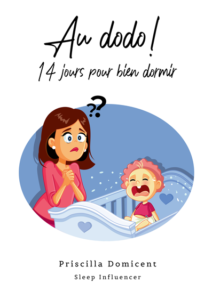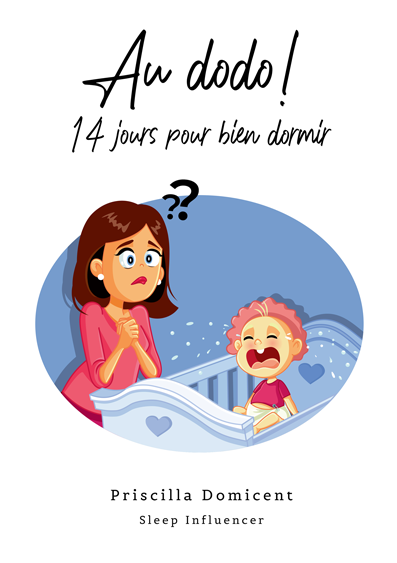When you walk out of the hospital with your newborn baby a lot of things are probably going through your head. “What are we going to do? How are we going to do this? Do we even know what we are doing?”
It can be overwhelming and will probably be the most important but the hardest adventure you will experience in your life.
And more than likely, you will become sleep deprived.
Sleep deprivation can cause you to do things you would never normally do. You hear terrifying stories of shaken baby syndrome and think that you would never do that to your child, but that is exactly why sleep is so utterly important when you have a child. Sleep deprivation can also cause, amongst other things, marital issues, postpartum depression, car accidents and breastfeeding problems. You are just not yourself without sleep. Therefore, sleep is a must for all parents!
They May Not Be Hungry
As the sun goes down you might notice your newborn getting fussier and with the continual wake ups every couple of hours the first few weeks it is of the utmost importance that we, as parents, comfort them as best and quickly as we possibly can. When an infant is groaning and crying, the first thing that comes to parents’ mind is: “How can I make my baby stop crying?”. Some solutions, like using the rocking chair or stroking his head, sometimes only lead to very short-term victories.
It is also easy to jump straight to the most convenient thing that moms find calm their babies almost instantly…nursing. Babies love sucking and love being close to their mamas. Skin to skin is wonderful! That being said, they may actually not be hungry in the first place but only want to soothe themselves and fall asleep by sucking.
We all have once wished our little one would come with a detailed instruction manual!
In fact, Priscilla Dunstan has decoded the universal language of babies. Babies between 0 and 3 months make the same type of sounds to express their basic needs. Dunstan identified 5 sounds that correlate with each one of them:
- “Neh” means hungry
- “Owh” means tired
- “Eh” means needs to burp
- “Eairh” means lower wind pain (gas)
- “Heh” means physical discomfort
Researches have shown that the Dunstan system increases the maternal self-esteem and unbroken sleep for both their baby and the parents. According to her: “When infants are happy and content you will find they will sleep better. Settling a tired baby is much easier than a baby who is wide awake. By following the sounds and acting on what is needed, your baby will feel more relaxed and so will you.” On their side, fathers reported reduced parenting stress, enjoying a greater parental involvement and more positive marital relationships.
Comforting a crying baby won’t make him capricious, spoiled or manipulative
Crying is not pathological; it’s part of the babies’ survival mode. They cry because they have basic needs and have no other ways to express themselves. An infant never cries to manipulate because he does not know that feeling yet.
You do not take any risk of making him capricious or a spoiled human being by holding him in your arms as soon as he fusses. On the contrary, infants need constant attention to grow emotionally, physically and intellectually. The faster you respond to tears, the sooner he will calm down and fall asleep. To comfort your baby, respond to his cries and needs. You can also try to entertain him. In doing this, he will know that he is loved and will feel safe. In addition, it will help him in the process of becoming a self-confident adult.
It can happen that your baby cries even after having been fed and changed. It seems that he just will not calm down. Dr. Karp has a great method for soothing that does include physical contact. It is called the “Five S’s”. That’s easy enough to remember! Let’s discuss.
Dr. Karp’s Method
Dr. Karp’s method suggests that the ideal way to calm your newborn baby and get him to sleep (the ultimate goal for sleep-deprived parents) is to mimic noises, movements and the environment within the womb.
Compared to other mammals, human babies are immature at birth and need extra care. They are out of the womb, but not quite ready for this world.
They could use what Karp calls a virtual “4th Trimester” with womb sensations. The rhythms felt in the womb keep babies relaxed. We think they need calm, quiet, still places but it’s quite the opposite!

The 5 S’s
To respond to the cries the best you can, Dr. Karp recommends to use the following 5 techniques reproducing in-utero sensations :
1) Swaddle – To do this, wrap their arms snug, keeping them straight at the side, but let their hips be loose and flexed. In my experience, my children have loved this “S”.
2) Side or Stomach – While “back is best” for sleeping, it is the worst position for calming fussiness. You can hold baby on his side or stomach. There’s a reason babies fall asleep in no time laying on mom or dad’s chest.
3) Shush – The womb is not a silent place! Do any of you sleep with a fan running? It’s a lot like that. Your baby has only ever known the sounds of the womb. In utero, babies are lulled by the sound of the blood flow in the placenta and the gurgling of the mother’s stomach. and it is said to be comparable to a vacuum cleaner! Using a white noise machine is the best way to imitate these noises. Parents can also whisper “shhhh” to baby’s ear or place a recording.
Related post: Sleep Myth #3: A Sleeping Baby Needs Complete Silence
4) Swing – In addition to being noisy, the womb is also a jiggly place. Dr. Karp recommends fast, tiny motions rather than a slow rocking when an infant is crying. Slow rocking is calming, but if a baby is wailing the “Jell-O head” jiggle (so named by Dr. Karp’s patients) works best. Support the neck and head, keep movements small and move less than an inch back and forth. Never shake the baby, of course.
5) Suck – Many parents quickly discover the magic of sucking. A lot of babies calm down with pacifiers and they work really well. They are also safe for sleep as they reduce the risk of SIDS.
Related Post: Pacifiers: When to Start, When to Stop, How to Wean
Related Post: Pacifiers: Pros, Cons and Safety Tips
Many things in parenthood are instinctual but the 5 S’s take practice. If one “S” is not working, maybe try another one (some babies only need one or two, so find the “S” that they like). You might also have to change your technique a bit to see what works for your baby. You could also look at other problems. Are they getting too much or too little milk? Are their bowel movements abnormal? There could also be a medical issue that is causing them to be colicky such as food intolerance or acid reflux.
Dr. Karp says that if you do all 5 S’s correctly, it will work in 98% of babies. If you’re part of that 2%, don’t be afraid to talk to your doctor if the fussing continues. That is what they are there for!
If you would like to get more information on how to improve the quality and / or the quantity of your child’s sleep (and yours at the same time), do not hesitate to schedule a 15-minute preliminary consultation. It is a totally FREE & NON-BINDING offer!









